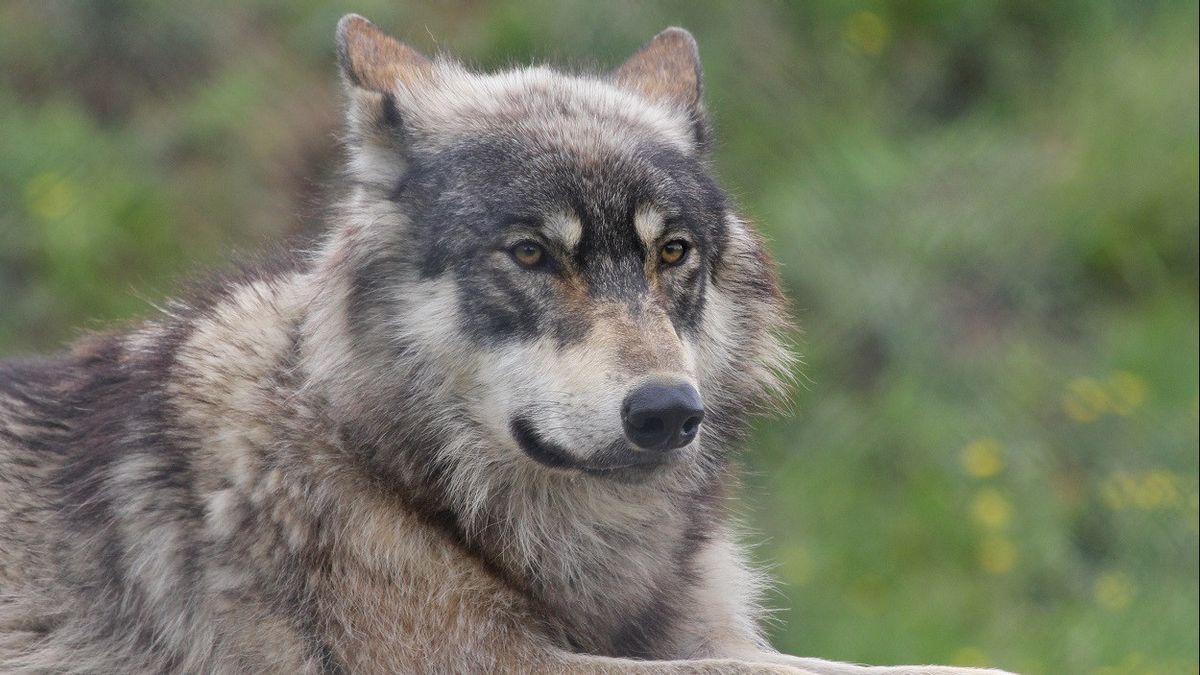JAKARTA - A federal judge overturned a Trump Administration-era decision to remove the gray wolf from the United States' endangered species list, after a coalition of wildlife organizations argued the move seriously threatened the animal's population.
Last Thursday, U.S. District Judge Jeffrey S. White in Northern California ruled in favor of a lawsuit filed by the Humane Society of the United States and other wildlife organizations, against the United States Department of the Interior in January 2021.
The US Fish and Wildlife Service (USFWS) "failed to adequately analyze and consider the impact of partial deletion and historical range loss on already registered species," White wrote in its decision, which restored protection of the gray wolf in 45 US states. February 12.
The lawsuit claims USFWS did not take proper consideration when stripping animals of protection from the Endangered Species Act (ESA), which took effect in January 2021 assuming the population recovered sufficiently.
"Today is a monumental victory for wolves who will now be protected from state-sponsored bloodshed," Kitty Block, president and CEO of the Humane Society, said in a statement.
"After another wolf deprivation was overturned in federal court, the US Fish and Wildlife Service should finally learn from it," he added.
"Instead of continuing to think of convoluted reasons to strip these beloved animals of legal protection, the agency should develop plans for meaningful restoration across the species range and ensure that states will not exterminate their wolf populations."

The federal government has 60 days to appeal the court's decision.
It is known that only the wolf population in the Northern Rockies remains unprotected as a result of laws passed in Idaho and Montana, according to the Humane Society, but USFWS is currently considering reintroducing them to those protections.
Meanwhile, six Native American Ojibwe tribes also sued the state of Wisconsin last year, claiming the state's planned wolf hunting was against their treaty-protected rights.
After the species was stripped of federal protection, Wisconsin hunters killed more than 215 wolves in less than three days as part of the February 2021 trophy hunting season, exceeding the state's citation by nearly doubling, according to the Humane Society.
Long before that, gray wolves received protection from the ESA in the 1970s, when their population dwindled due to their declining population and frequent conflicts with farmers and ranchers.
Certain wolf populations on the West Coast and in the Southern Rocky Mountains are particularly vulnerable and at risk of 'disappearing forever', as a result of the Donald Trump-era decision, the Humane Society said in a statement when the lawsuit was filed.
"Our lawsuit argues that by treating the plight of this fragile population as insignificant and ignoring the natural and man-made threats that wolves still face nationally, the government is violating the Endangered Species Act and its legal obligation to protect wolves and help them recover," reads that statement.

Michigan Attorney General Dana Nessel, who took part in the amicus brief in the coalition lawsuit, said his state is home to about 700 gray wolves.
"These extraordinary animals have an important role in our Great Lakes ecosystem. And they show us that dedication to family goes beyond humans," Nessel said in a statement.
However, some hunter advocacy groups have rejected the decision, arguing it would affect predator management programs aimed at reducing predation.
"We are disappointed that an activist judge from California has decided to tell farmers, ranchers and anyone else who supports a balanced ecosystem with reasonable predator management that he knows better than they do," said Hunter Nation President and CEO Luke Hilgemann in a statement. .
"At Hunter Nation, we prefer to trust local experts and our conservation and hunting partners, to create a predator management program that makes sense for them. Rather than put our trust in bureaucrats who don't spend time in the forest, or have never dealt with the negative consequences of a population." uncontrollable wolf," he said.
The English, Chinese, Japanese, Arabic, and French versions are automatically generated by the AI. So there may still be inaccuracies in translating, please always see Indonesian as our main language. (system supported by DigitalSiber.id)













